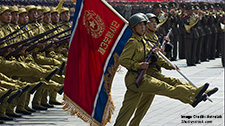EU-U.S. Convergence on China Chip Sanctions: On Brittle Ground?
Johannes Nordin
The United States unveiled new wide-ranging restrictions on China’s semiconductor industry in October 2022, unprecedented in scope and intent. Abandoning the Trump years’ erratic approach to individual Chinese tech companies, the Biden administration comprehensively targeted the entire semiconductor supply chain, including allied exports. Not only did the sanctions cut off access to advanced components containing U.S. technologies, but they also sought to end China’s access to the manufacturing equipment needed to produce such components in the first place. The European Union has since sought to find a balance in the new Sino-American tech war, culminating in the EU’s Economic Security Strategy of June 2023. This issue brief examines the motivations and impacts of the U.S. chips sanctions and how they have impacted transatlantic relations and European semiconductor priorities.
Related Publications
-
The Political Split at the Heart of Taiwan’s Struggle against Foreign Disinformation
Taiwan’s struggle against foreign disinformation and concerns about China’s impact on its 2024 election has received much international attention recently. This issue brief examines the domestic and international politics behind […]
-
Russia-DPRK Relations: Implications for the UNSC’s Mandate
The burgeoning military cooperation between Russia and the DPRK poses a significant challenge to global security. The simplified characterization of the alleged arms deal as a product of converging interests […]
-
Contemporary Hong Kong-Taiwan Relations in China’s Shadow
On November 25, 2022, the Institute for Security and Development Policy (ISDP) arranged a webinar titled “Contemporary Hong Kong-Taiwan Relations in the Shadow of the People’s Republic of China”. The […]
-
Russia-DPRK Space Cooperation: It’s Politics, Not Science
The recent Vostochny summit between North Korean leader Kim Jong Un and Russian President Vladimir Putin has attracted much international attention. The fact that both leaders pledged to strengthen bilateral […]
-
Unpacking Beijing’s Narrative on Taiwan
Executive Summary Shaping economic rules, technology standards, and political institutions have been the core pillars of Chinese leader Xi Jinping’s efforts to advance his authoritarian model and weaken democratic processes […]




